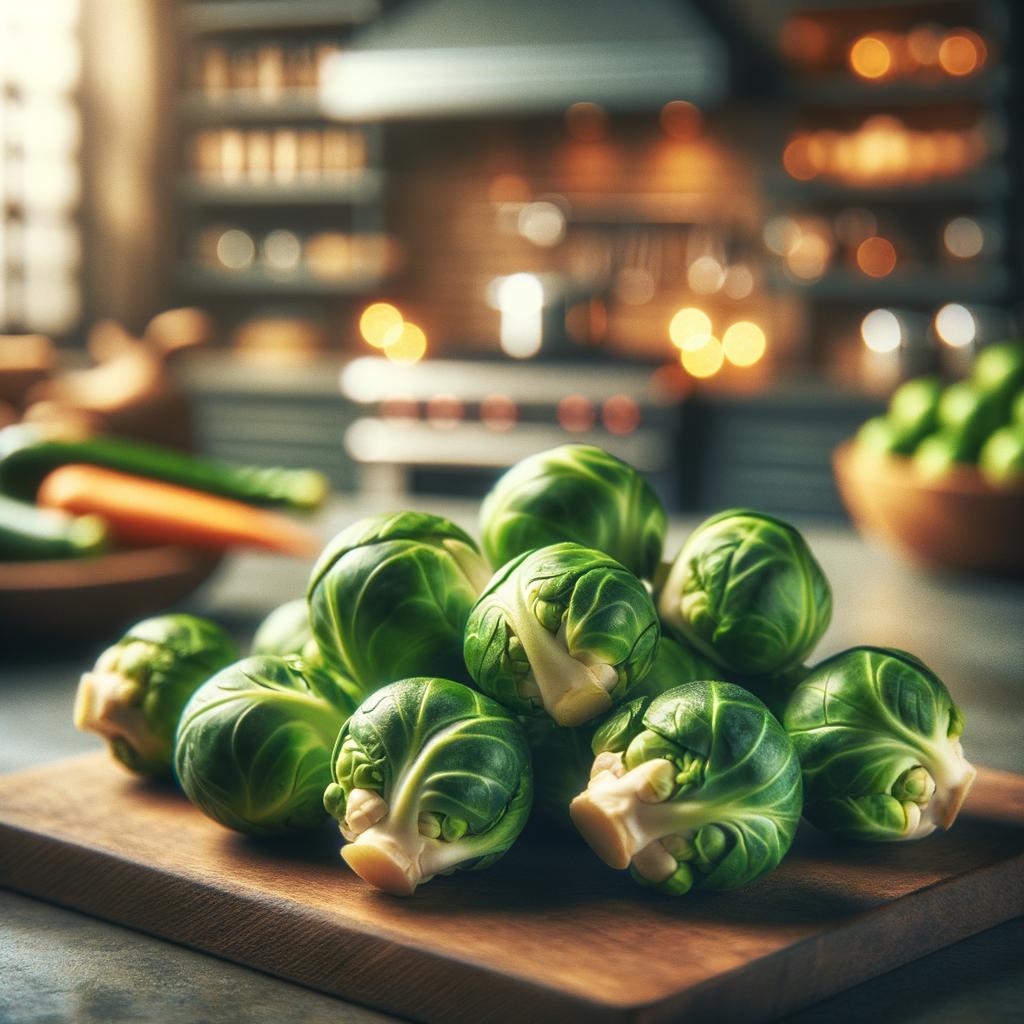Brussels Sprouts

Description
Brussels sprouts, tiny emerald gems of the vegetable world, are a delightful sight to behold. These miniature cabbages, compact and perfectly rounded, are usually about 1 to 1.5 inches in diameter. Their tightly packed, leafy green layers have a firm texture that softens beautifully when cooked. The flavor profile of Brussels sprouts is quite complex and intriguing. They possess a unique, slightly bitter taste that is beautifully balanced by a hint of sweetness. When roasted or sautéed, they develop a delightful caramelized exterior that adds a layer of savory, nutty flavor. What sets Brussels sprouts apart from their cabbage counterparts is their size and the depth of flavor they achieve when cooked properly.
Primary Uses
Brussels sprouts are a versatile ingredient that can be prepared in a variety of ways. They are commonly roasted, sautéed, or steamed, and are a key component in many European and North American dishes, particularly during the fall and winter seasons. You can find them in salads, stir-fries, and as a side dish to complement hearty meats. Brussels sprouts are also pickled, or shredded raw into slaws. Beyond their culinary uses, these little powerhouses have been used in traditional medicine for their high nutrient content and are often associated with Christmas festivities in the United Kingdom.
History
The history of Brussels sprouts is as charming as the vegetable itself. They are believed to have originated in ancient Rome, but their name comes from Belgium's capital, Brussels, where they gained popularity in the 16th century. Over time, these miniature cabbages have traveled across the globe, winning hearts with their unique taste and nutritional value. There's a romantic folklore that children in Belgium are told - Brussels sprouts are fairy cabbages, grown by these tiny creatures for their feasts. This tale not only adds to the charm of Brussels sprouts but also encourages children to include them in their diet.
Nutritional Information
Brussels sprouts are a nutritional powerhouse, packed full of vitamins and minerals. They are an excellent source of Vitamin K, Vitamin C, and fiber, and a good source of folate and manganese. They are also rich in antioxidants and contain compounds that have been associated with lower risks of cancer. Despite their small size, they are more nutrient-dense than regular cabbages. However, overcooking Brussels sprouts can lead to a significant reduction in their nutrient content, so it's best to cook them just until they are tender-crisp to retain their nutritional value.

